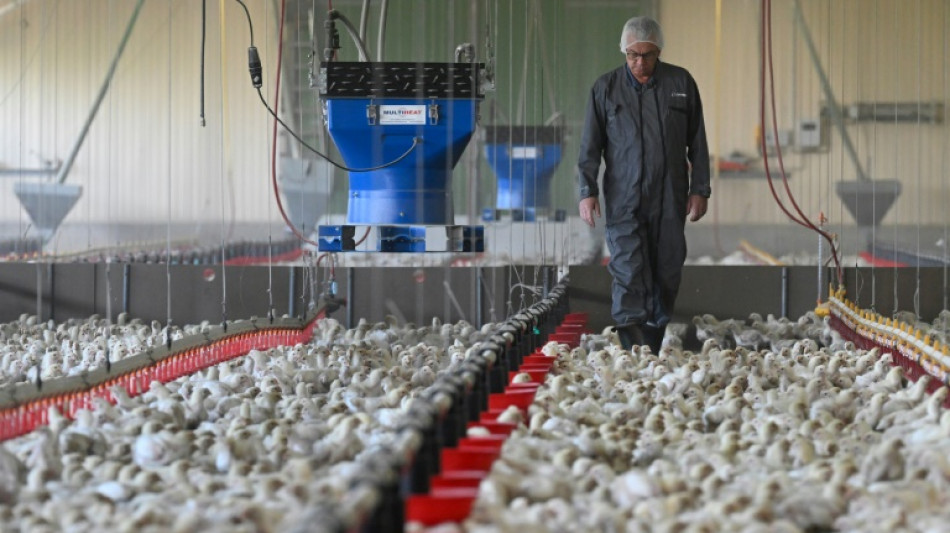
-
 Fans cheer for absent Ronaldo as Saudi row deepens
Fans cheer for absent Ronaldo as Saudi row deepens
-
Violence-ridden Haiti in limbo as transitional council wraps up

-
 Hundreds protest in Milan ahead of Winter Olympics
Hundreds protest in Milan ahead of Winter Olympics
-
Suspect in murder of Colombian footballer Escobar killed in Mexico

-
 Colombia's Rodriguez signs with MLS Minnesota United
Colombia's Rodriguez signs with MLS Minnesota United
-
Wainwright says England game still 'huge occasion' despite Welsh woes

-
 WADA shrugs off USA withholding dues
WADA shrugs off USA withholding dues
-
France detects Russia-linked Epstein smear attempt against Macron

-
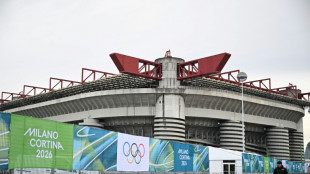 Winter Olympics to open with star-studded ceremony
Winter Olympics to open with star-studded ceremony
-
Trump posts, then deletes, racist clip of Obamas as monkeys

-
 Danone expands recall of infant formula batches in Europe
Danone expands recall of infant formula batches in Europe
-
Trump deletes racist video post of Obamas as monkeys

-
 Colombia's Rodriguez signs with MLS side Minnesota United
Colombia's Rodriguez signs with MLS side Minnesota United
-
UK police probing Mandelson after Epstein revelations search properties

-
 Russian drone hits Ukrainian animal shelter
Russian drone hits Ukrainian animal shelter
-
US says new nuclear deal should include China, accuses Beijing of secret tests

-
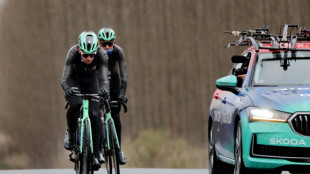 French cycling hope Seixas dreaming of Tour de France debut
French cycling hope Seixas dreaming of Tour de France debut
-
France detects Russia-linked Epstein smear attempt against Macron: govt source

-
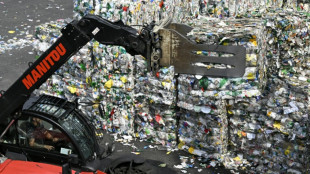 EU nations back chemical recycling for plastic bottles
EU nations back chemical recycling for plastic bottles
-
Terror at Friday prayers: witnesses describe blast rocking Islamabad mosque

-
 Iran expects more US talks after 'positive atmosphere' in Oman
Iran expects more US talks after 'positive atmosphere' in Oman
-
US says 'key participant' in 2012 attack on Benghazi mission arrested

-
 Why bitcoin is losing its luster after stratospheric rise
Why bitcoin is losing its luster after stratospheric rise
-
Arteta apologises to Rosenior after disrespect row

-
 Terror at Friday prayers: witness describes 'extremely powerful' blast in Islamabad
Terror at Friday prayers: witness describes 'extremely powerful' blast in Islamabad
-
Winter Olympics men's downhill: Three things to watch
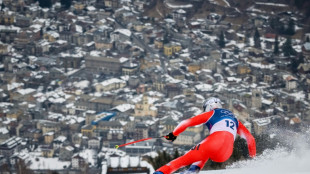
-
 Ice dancers Chock and Bates shine as US lead Japan in team event
Ice dancers Chock and Bates shine as US lead Japan in team event
-
Stellantis takes massive hit on 'overestimation' of EV demand

-
 Stocks rebound though tech stocks still suffer
Stocks rebound though tech stocks still suffer
-
Spanish PM urges caution as fresh rain heads for flood zone
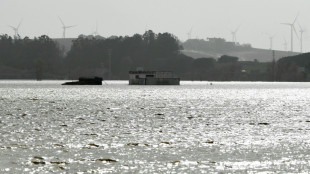
-
 Iran says to hold more talks with US despite Trump military threats
Iran says to hold more talks with US despite Trump military threats
-
Russia accuses Kyiv of gun attack on army general in Moscow
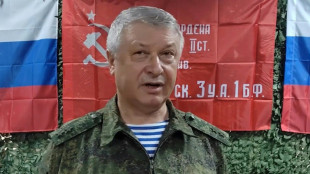
-
 Cambodia reveals damage to UNESCO-listed temple after Thailand clashes
Cambodia reveals damage to UNESCO-listed temple after Thailand clashes
-
Norway crown princess 'deeply regrets' Epstein friendship
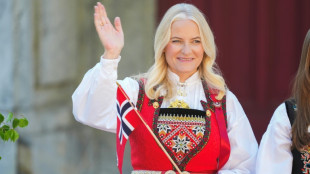
-
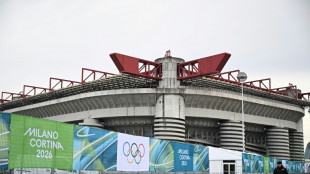 Italy set for Winter Olympics opening ceremony as Vonn passes test
Italy set for Winter Olympics opening ceremony as Vonn passes test
-
England's Jacks says players back under-fire skipper Brook '100 percent'

-
 Carrick relishing Frank reunion as Man Utd host Spurs
Carrick relishing Frank reunion as Man Utd host Spurs
-
Farrell keeps the faith in Irish still being at rugby's top table

-
 Meloni, Vance hail 'shared values' amid pre-Olympic protests
Meloni, Vance hail 'shared values' amid pre-Olympic protests
-
Olympic freestyle champion Gremaud says passion for skiing carried her through dark times
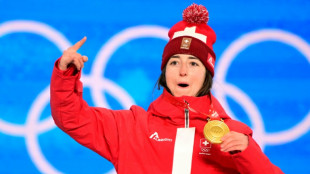
-
 US urges new three-way nuclear deal with Russia and China
US urges new three-way nuclear deal with Russia and China
-
Indonesia landslide death toll rises to 74
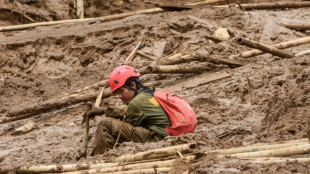
-
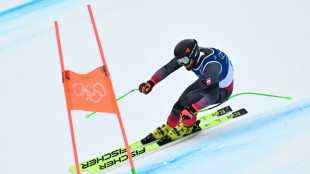 Hemetsberger a 'happy psychopath' after final downhill training
Hemetsberger a 'happy psychopath' after final downhill training
-
Suicide blast at Islamabad mosque kills at least 31, wounds over 130

-
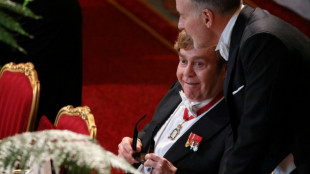 Elton John accuses UK tabloids publisher of 'abhorrent' privacy breaches
Elton John accuses UK tabloids publisher of 'abhorrent' privacy breaches
-
Lindsey Vonn completes first downhill training run at Winter Olympics

-
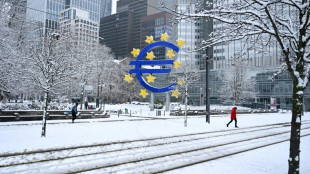 Digital euro delay could leave Europe vulnerable, ECB warns
Digital euro delay could leave Europe vulnerable, ECB warns
-
Feyi-Waboso out of England's Six Nations opener against Wales

-
 Newcastle manager Howe pleads for Woltemade patience
Newcastle manager Howe pleads for Woltemade patience
-
German exports to US plunge as tariffs exact heavy cost

| CMSC | 0.02% | 23.555 | $ | |
| BCC | 2.77% | 91.7 | $ | |
| SCS | 0.12% | 16.14 | $ | |
| NGG | 1.26% | 87.995 | $ | |
| BCE | -1.55% | 25.18 | $ | |
| RIO | 2.61% | 93.565 | $ | |
| CMSD | 0.17% | 23.93 | $ | |
| JRI | 0.54% | 12.95 | $ | |
| AZN | 3.45% | 193.855 | $ | |
| BTI | 1.33% | 62.795 | $ | |
| GSK | 1.94% | 60.34 | $ | |
| RYCEF | 1.54% | 16.88 | $ | |
| RBGPF | 0.12% | 82.5 | $ | |
| VOD | 3.21% | 15.105 | $ | |
| RELX | -2.49% | 29.36 | $ | |
| BP | 2.09% | 38.985 | $ |

Can factory chicken really help save the climate?
Stephane Dahirel doesn't exactly say eat chicken and save the planet, but that is what he's hinting at as he opens a shed door on his intensive farm in Brittany, western France.
The 30,000 chickens inside will more than triple in size in less than a month and their meat will have a low carbon footprint.
"The objective is to produce the best meat possible, in the least amount of time, with the least amount of food," Dahirel said.
The two million snow-white chickens he produces every year -- bred mostly for McDonald's nuggets -- will reach their slaughter weight in less than half the time it takes on a traditional farm.
At 20 days they already weigh one kilo (two pounds) -- 20 times heavier than at birth. By the time they are slaughtered at 45 days, they will weigh over three kilos.
Chicken has the smallest carbon footprint of any meat, according to the UN's Food and Agricultural Organization (FAO), less than half the two kilos of CO2 produced for a kilo of pork, and 30 times less than that of beef.
While cows produce a lot of planet-warming methane, chickens emit very little. As much, in fact, as rice, the FAO says, or even less if they are intensively farmed.
Dahirel insisted that intensive farming is "the most efficient and rational system" for producing meat "from an economical and ecological perspective".
- Animal welfare -
But there are big drawbacks too. Despite the low emissions he claims for his chickens, producing the grain to feed them requires large amounts of land, synthetic fertilisers and pesticides.
All have effects on biodiversity and water quality. Indeed green algae blooms on beaches in Dahirel's native Brittany -- partly caused by intensive pork, poultry and dairy production -- has caused an environmental outcry and been linked to several deaths.
Intensive farming is also in the dock on animal well-being.
Dahirel raises 20 chickens per square metre (20 chickens per 10 square feet), which are kept on a litter where droppings are absorbed by wood shavings and buckwheat hulls.
Sick or abnormal chickens are killed to avoid further suffering and because the automated slaughterhouse requires a homogenous product.
"They are not robots of course, but we're looking for homogeneity," the farmer said from his veranda overlooking his three sheds, which are covered in solar panels.
- We must 'eat less meat' -
Chickens may be an optimal animal protein for carbon emissions, but not necessarily for nature, experts say.
"If we think only in terms of CO2 emissions per kilo of meat, we'd all start eating chicken. But thinking that's the solution would be a massive mistake," said Pierre-Marie Aubert, of France's IDDRI sustainable development think tank.
"If you only think in terms of carbon, a heap of things would backfire on us in the long run," he added.
Aubert said there had been a "crazy" rise in consumption of chicken in recent years, making it one of the most widely consumed meats in the world, with none of the religious and cultural taboos associated with pork and beef.
The world has become so focused on methane emissions from ruminants like cattle and sheep "that many people think substituting beef with chicken is enough, but really, we need to reduce all meat consumption," said Lucile Rogissart, of the Institute for Climate Economics (I4CE).
D.AbuRida--SF-PST



